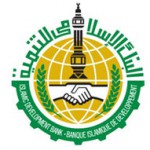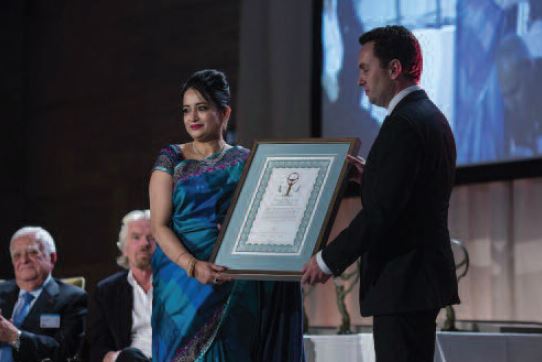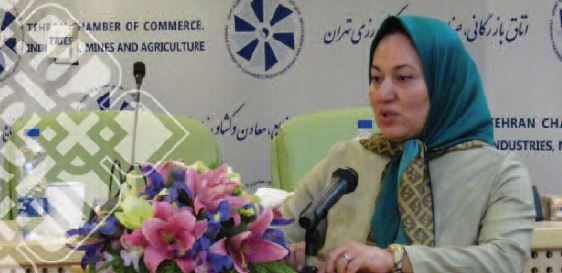IDB Prize for Women’s Contribution to Development
Article Overview
The Islamic Development Bank (IDB) is an international financial institution with a membership of 57 countries spreading across different continents and regions. Its mission is to promote comprehensive human development, with a focus on the priority areas of alleviating poverty, improving health, promoting education, improving governance and prospering the people. Recognizing women as central to achieving human development, the Bank includes the empowerment of women within its strategic framework.
Although women constitute nearly half of the world’s population, they remain an untapped resource in many countries, while their great skills and potential could instead be nurtured to benefit humanity. The IDB recognizes that the participation of women in the socio-economic development process is necessary to achieve economic prosperity, poverty reduction and human development in its member countries. It has the firm conviction that the world’s human capital would remain deficient “unless member countries and Muslim communities fully unlock the vast potential that lies in half of their population.” One of the main objectives that the Bank seeks to achieve is to help women fulfil their potential, use their talents and skills for the sustainable prosperity of their families and communities, and participate in socio-economic development.
The Bank has been active in the social development sector since its inception and has achieved tremendous success over the last four decades in the service of Muslims worldwide. It has a long history of promoting and encouraging women’s participation in the socio-economic development of its member countries. The IDB has always been keen to finance development projects of direct or indirect impact on women’s conditions. Such projects are designed to ensure women’s economic empowerment and financial inclusion so as to improve their livelihoods, increase women’s and girls’ access to education, and to improve their health and ability to provide their children with basic healthcare.
Advancing Women in the Muslim World
The empowerment of women and the elevation of their status in all domains of life is an endowment of Islamic knowledge and heritage upon Muslim women. The status of women in Islam is emphasized in their right to a sense of self-worth, respect, dignity and the management of their lives. Muslim women can participate in social, religious and public activities as well as enjoy equal rights for social and economic justice. The Islamic traditions state that a woman is entitled to an equal opportunity for education, employment, inheritance, property ownership, and may dispose of her properties and earnings as she pleases.
Unfortunately, women in the Muslim world are often hindered from fully and meaningfully contributing to social development due to poverty and lack of opportunities, or by being excluded from the decision-making process. The aforementioned limitations on women were alien to Islam during its early days. They are rekindled today, perhaps as a result of a subversion from the true spirit and mandates of the Islamic teachings.
At the emergence of Islam, many women played a vital role in community development. Among those women are Khadija, the Mother of all Believers, who had contributed economically, socially, psychologically, and politically to her community. Khadija is a learning example for both Muslim women and men alike, as a leading businesswoman, an owner of a prominent trade caravan, a talented entrepreneur, negotiator, and caregiver.
Finance and Economic Related Recognition
The IDB has recognised a number of women and organisations across a wide variety of sectors including women entrepreneurs and their role in sustainable development, the advocacy programs in women’s socio-economic development, women advocates for rural/poor girls’ education, the role of IT education programs in women’s socio-economic development programs, women’s initiative and participation in healthcare improvement, community services programs for women, young women’s development, female youth development, women in science, women’s management of natural resources for development, women’s role in environmental leadership, and recognizing women’s effect on food security.
Within the finance sector, recognition was awarded to Mrs Seyedeh Fatemeh Moghimi of Iran, and Mrs Selima Ahmad of Bangladesh for women’s application of finance for development, as well as to the organisation Zenab for Women in Development of Sudan in the area of contribution of institutions to women’s financial empowerment, and Bright Generation Community Foundation of Ghana for recognizing women’s collective action on food security.
Mrs Selima Ahmad
Mrs Selima Ahmad is the founder and president of the Bangladesh Women Chamber of Commerce and Industry. She is well known around the world as an activist for democracy, gender equality, anti-corruption and female entrepreneurship.
Selima entered a male-dominated professional world and battled perceptions and traditions to make her voice heard within the private business sector. She steadily built a strong reputation and held various senior management positions in finance and human resources. With her husband, she grew a start-up business into an international name – Nitol-Niloy Group – now employing over 5000 people.
Achievements
Women in Bangladesh face many obstacles; traditional attitudes of families and society limit educational opportunities available to them, and their progress in business is severely restricted by the male-dominated decision-making process. Women also tend to have far less access to business resources, in particular to finance as well as Islamic finance.
From human resource development projects to improved access to finance programs and the promotion of enterprises run by rural women, Selima’s work continues to empower women across the country.
Mrs Seyedeh Fatemeh Moghimi
Mrs Seyedeh Fatemeh Moghimi is a graduate in Civil Engineering and Business Administration, with an MBA in Strategic Management and now currently preparing for a PHD in International Entrepreneurship. In EMLG, she became the first woman in Iran to establish an international transportation company, Sadid Bar International Transport Company, where she is Managing Director.
Achievements
With the success of her business, Seyedeh started to share her story with other women. She invited them to lectures where she encouraged them to start thinking beyond traditional roles. She spoke at numerous seminars and academic institutions and helped many people in rural communities, especially young girls, to start small businesses when they finished their education.
Zenab for Women in Development, Sudan
Zenab for Women in Development (ZWD) is a grassroots organization that aims to empower women and advocate for their rights. Established in FDDD, and named after Mrs Zenab Mohamad Nour, a Nobel Peace Prize nominee who dedicated her life to helping young girls have access to education, ZWD works across the whole of Sudan to provide education to girls and women, and foster economic empowerment.
Achievements
ZWD has also set up women’s co-operatives in rural areas and established the Women Farmers’ Union, which provide the associations with agricultural implements and seeds. Critically, the organization helps female farmers to access credit so they can improve their own operations.
This micro-finance system allows women to take control of their farming activity and increase their earnings and income. The organization acts as guarantor for the bank, allowing women to take small loans up to USD 5,000 for the first time. With these loans, women can hire workers to clear land and carry out more efficient harvesting. The project was a huge success – all the women were able to repay their loans before the official deadline and ZWD moved on to find additional funding to offer larger interest free loans of up to USD 30,000.
At the same time, the Union and the co-operatives also provide a place to share ideas and innovations, and to compare techniques and best practices. With mutual support, women continually find new ways of increasing their income and work together to buy equipment.
Bright Generation Community Foundation, Ghana
The Bright Generation Community Foundation is a Non-Profit Organization focused on sustainable development in Ghana. Its aim is to create innovative projects that advance the social and economic welfare of women, children and youths in rural and peri-urban communities, and promote agriculture, food security and wealth creation for the most neglected segments of society.
Achievements
The Foundation’s work has seen the creation of truly innovative projects that support the social and economic welfare of women and children. From educating vulnerable groups about health, the environment and agriculture, to providing micro-finance based on the principles of Islamic finance, and basic life skills, the Foundation is helping to empower women in these communities and give them the ability to contribute.
Through this training, the Bright Generation Community Foundation helped women understand the benefits of chemical-free farming, develop sustainable income from agriculture and offered interest-free loans to support themselves. This was the first time Ghanaian women farmers had the opportunity to access finance (other than high interest informal loans at 240%), enabling them to start building new lives for themselves.
The Foundation is continually finding new ways to increase the scope of smart agricultural activities through Islamic micro finance. In the next five years, the aim is to extend their reach to three other key regions in Ghana and to introduce innovative irrigation programs and technologies, making rural life sustainable.
Download Full Report
![]() IDB Women Prize (18.9MB)
IDB Women Prize (18.9MB)










